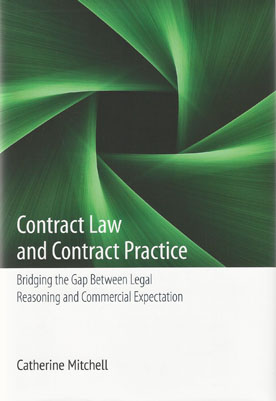
An oft-repeated assertion within contract law scholarship and cases is that a good contract law (or a good commercial contract law) will meet the needs and expectations of commercial contractors.
Despite the prevalence of this statement, relatively little attention has been paid to why this should be the aim of contract law, how these 'commercial expectations' are identified and given substance, and what precise legal techniques might be adopted by courts to support the practices and expectations of business people.
This book explores these neglected issues within contract law. It examines the idea of commercial expectation, identifying what expectations commercial contractors may have about the law and their business relationships (using empirical studies of contracting behaviour), and assesses the extent to which current contract law reflects these expectations.
Ultimately the book seeks to move contract law beyond a simple dichotomy between contextualist and formalist legal reasoning, to a more nuanced and responsive legal approach to the regulation of commercial agreements.